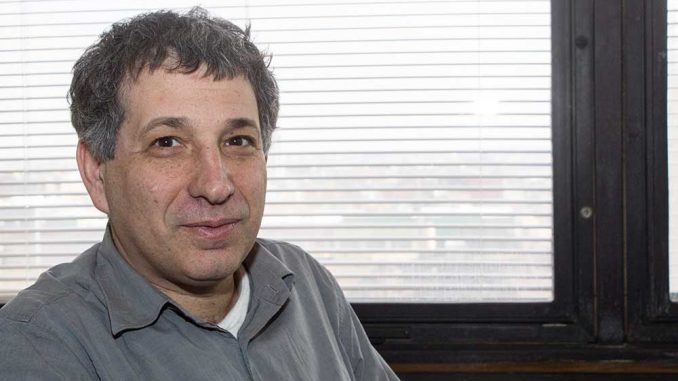
Daniel Chomsky, a political science professor at Temple, has had politics ingrained in his life since childhood. Chomsky not only grew up with an immediate family shrouded in politics, but also has Noam Chomsky, the famous linguist and historian, as an uncle.
Having grown up in Philadelphia, Chomsky attended Temple before moving away to Northwestern University for graduate studies. Chomsky then moved back to Philadelphia so he could do his graduate work in the New York Times’ archives where he studied how media institutions make decisions.
Chomsky found himself back in Philadelphia where he was given the opportunity to teach at his undergraduate alma mater, and has been teaching here since Fall 2000.
The Temple News: Can you explain a bit about your family background?
Daniel Chomsky: Well, my interest in politics comes from my family. My family was always very political and that includes my parents and my uncle as well. They gave me an interest in politics and we talked politics around at home. One of the things people ask about my uncle – [Noam Chomsky] – they say, “Well what is he like?”
I think they have this assumption that he’s not like other people, that he is different in some way. And my answer is that he is just like everybody else when you interact with him. So while on a basic level my interest in politics comes from just the world which I grew up where everyone was interested in politics. To me it just seemed completely normal.
TTN: So what brought you back to Philly after graduate school?
DC: I was doing my doctoral work in Chicago, at Northwestern. I became aware of a source of data, I do work on the mass media, and somebody, I think it was one of my dissertation advisers, had heard second hand that it was possible to get access to internal documents from the New York Times. Nobody there had done academic work on that and really nobody was aware that you could do that. So that meant doing work in New York and I was working on the world of mass media and particular historic events and how mass media make decisions and the relationship between mass media and society. When I found out that this might be possible, I looked into it and I ended up doing a lot of work in the New York Times corporate archives, collecting data from the New York Times corporate archives. Since I had ties to Philadelphia, and New York was expensive, I basically came back here and commuted up and back to New York. So that’s what brought me back, just the opportunity to do research closer to town.
That decision was a good one – not coming back to Philadelphia, so much as this opportunity to work in the New York Times’ archives. [It was] a really valuable opportunity. As far as I could tell, nobody had done this kind of work. This is kind of like a micro study. I tried to figure out how media institutions make decisions. Other people had gone about that in different ways, but nobody has really made use of these internal memos to figure out how media institutions make decisions. That was a really useful opportunity that has been essential to my work since graduate school. So coming back to Philadelphia was just kind of an accident, and getting a job at Temple was really just an accident. I was here finishing up my dissertation, and they needed somebody. I believe it was an immediate need for a short-term replacement, so that’s how I got the job here.
TTN: How long were you doing your research at the New York Times?
DC: Well I was in the archives for, the answer really is, however long I could stay. It turned out that when I found out that I could do this work in the New York Times’ archives, they weren’t really set up to have researchers come in, though I guess a couple people had gone in to look at documents. This was a back office away from the main operations of the New York Times where they just collected these old records. I told them what I wanted and I had people write on my behalf saying that I would be responsible. So they let me in, and once I was there and realized what kind of valuable collection this was and how much interesting material I could get out of it, I stayed as long as I could.
I kept giving them excuses to let me stay. They were getting more and more suspicious about why I was hanging around and I tried to get as much as I could before they were going to kick me out. I got the sense that my lease was running out. I guess I was there off and on over a matter of half a year or something like that. When the official biographers of the Times’ owner’s family were moving in to write an official history of the Times’ owners, my welcome was running out.
Now, most of this stuff is more easily accessible now that the Times has moved most of their material out of the Times’ offices and it is now available at the New York Public Library. If [only] I had known that that is how it was going to end up, and how much easier that would have been.
Taylor Farnsworth can be reached at taylor.farnsworth@temple.edu.



I heard and met Noam Chomsky once ..went up to say hello to him..and I said “my name used to be Chomsky before I married. He looked totally blank and I felt that he probably was thinking >>pass the peanut butter..
Northwestern? I remember studying with Dan at the University of Chicago.